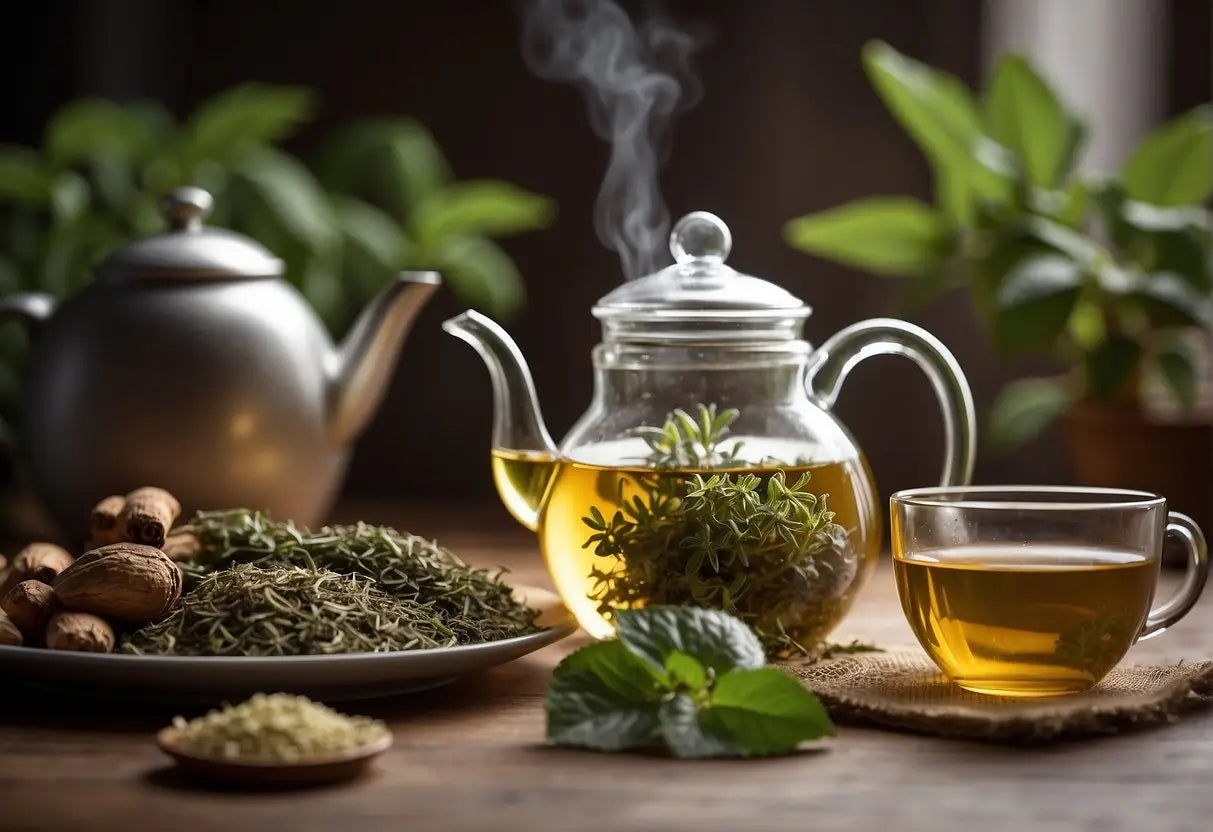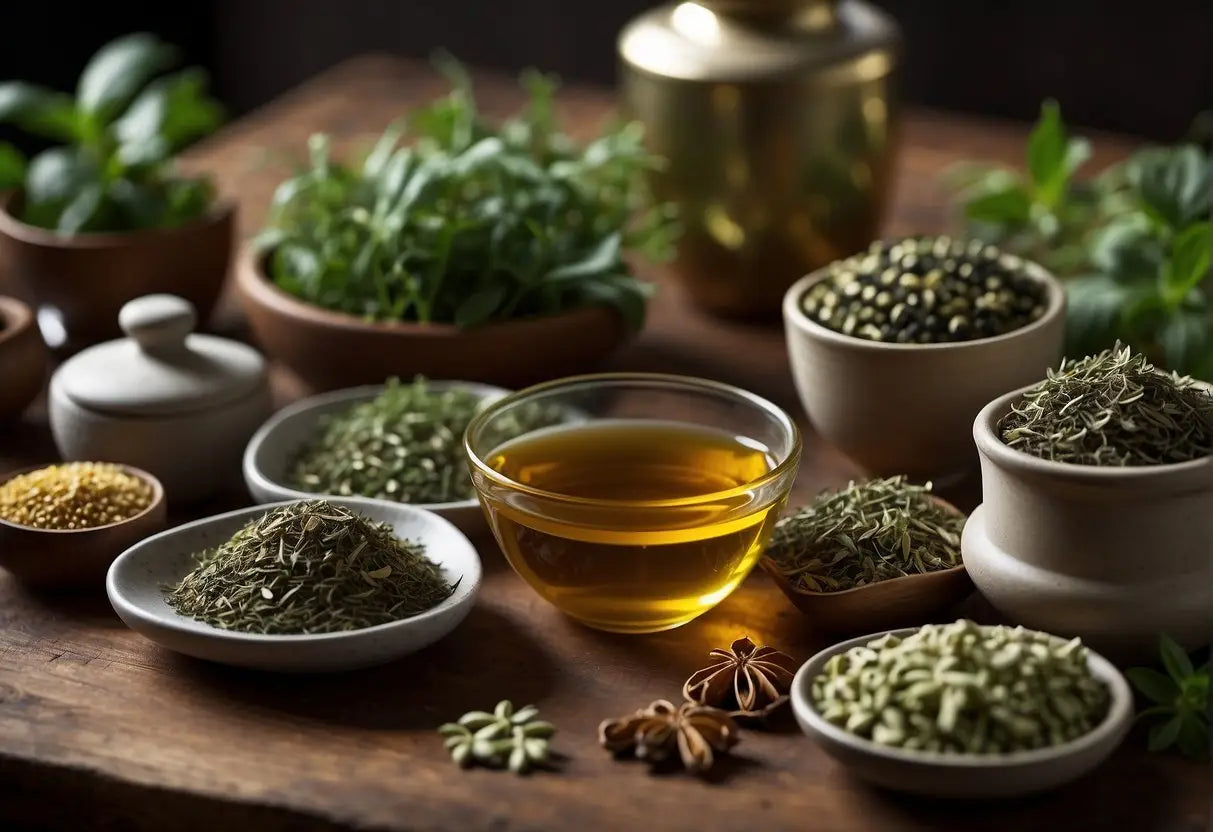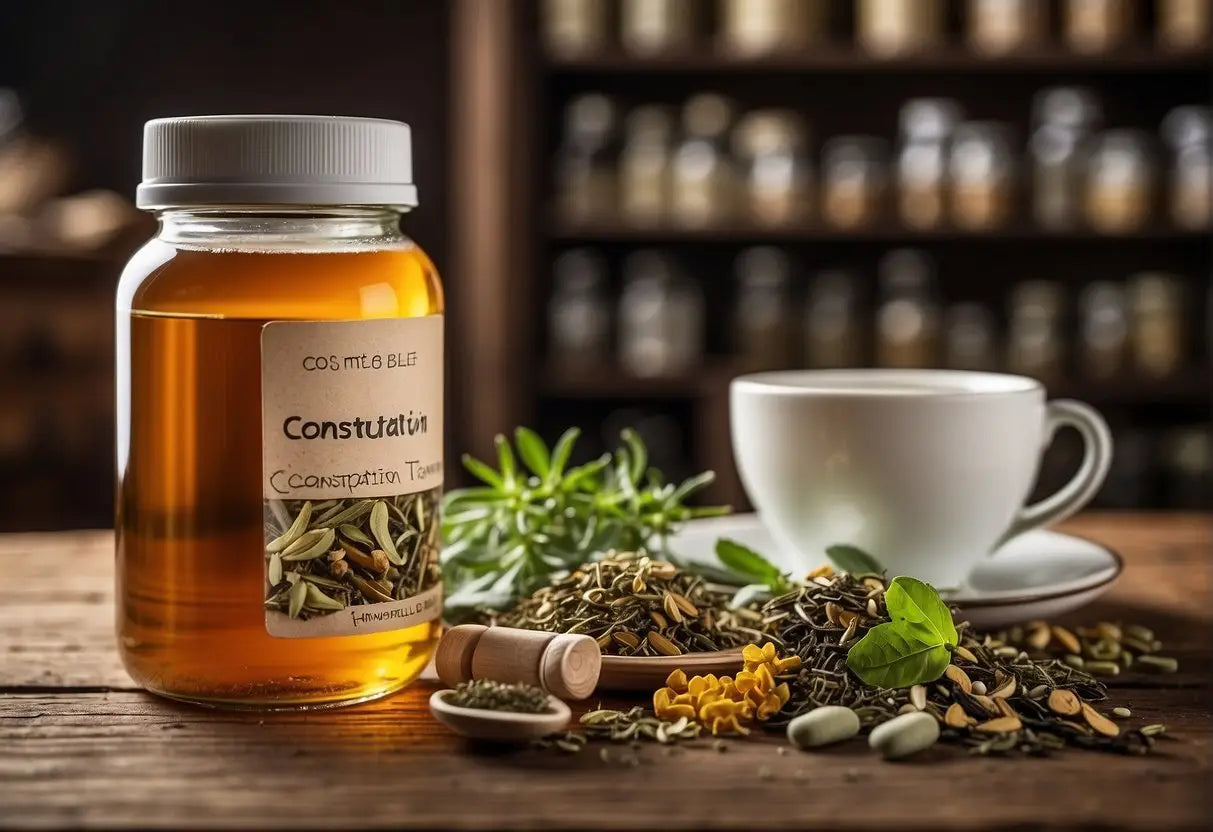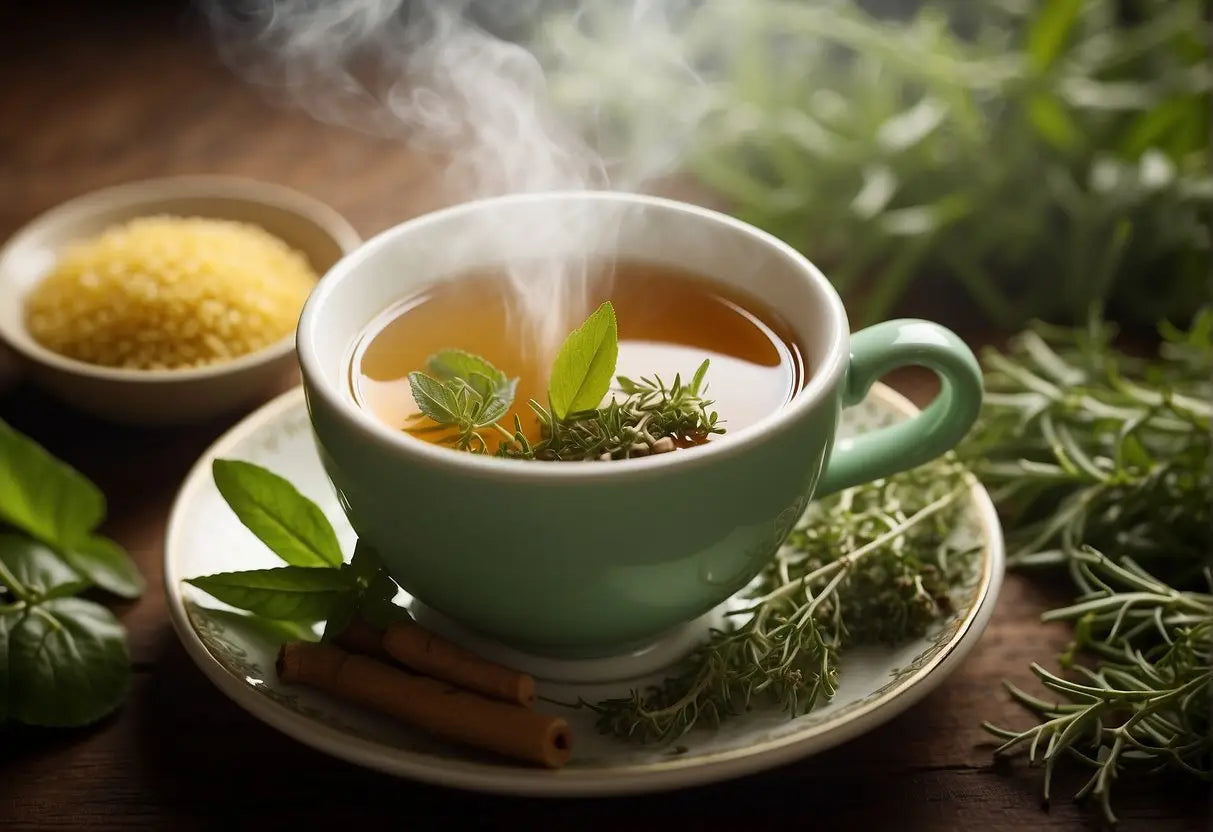What Tea Helps with Constipation
Before exploring how tea can aid with constipation, it's essential to have a clear understanding of what constipation is, its causes, how to recognize it, and the importance of diet.
Causes of Constipation
Constipation occurs when you experience difficulty in bowel movements or have infrequent stools. Common causes include:
- Lack of fiber: Diets low in fiber lead to hard stools that are difficult to pass.
- Dehydration: Inadequate water intake can result in dry stool.
- Physical inactivity: Limited physical activity can lead to weaker intestinal contractions.
- Medications: Certain medications can cause constipation as a side effect.
- Ignoring the urge to go: Regularly ignoring bowel movement urges can cause constipation.
Symptoms of Constipation
Recognizing constipation is straightforward with these primary symptoms:
Bestsellers
- Infrequent bowel movements: Less than three per week is a general indicator.
- Difficulty passing stool: Straining or pain during bowel movements.
- Hard or lumpy stools: These are typical when constipated.
- Feeling of incomplete evacuation: The sensation that not all stool has passed.
Role of Diet in Constipation
Your diet plays a critical role in maintaining regular bowel movements:
- High-Fiber Foods: Consuming foods rich in fiber, like fruits, vegetables, and grains helps to soften stool and increase its bulk.
- Hydration: Drinking plenty of fluids, especially water, makes stool easier to pass.
- Balanced Meals: Ensuring a variety of nutrients in your diet supports overall digestive health.
Teas for Constipation Relief

Specific teas can help alleviate constipation by stimulating digestion or providing mild laxative effects.
Senna Tea
Senna tea is derived from the leaves of the Senna plant. It contains compounds called sennosides, which act as stimulant laxatives. Use with caution: Senna is potent and should not be taken long-term.
- Recommended Brew Time: Steep for 5-10 minutes.
- Usage: Limit usage to short periods.
Peppermint Tea
Peppermint tea is known for its soothing properties and its ability to relax the muscles of the digestive system, which may relieve constipation symptoms.
- Menthol: Peppermint contains menthol, which helps relax the digestive tract.
- Flavor: It has a refreshing, cool flavor, making it a pleasant choice.
Ginger Tea
Ginger tea can help with digestive regulation. Gingerol, the active component, can help increase the speed at which food moves through the stomach.
- Digestive Aid: Ginger has been used to help with various digestive issues.
- Preparation: Use fresh ginger root for the strongest effect.
Green Tea
Green tea is generally mild but can help with digestion due to its high catechin content. However, it should be consumed in moderation.
- Catechins: These are antioxidants with various health benefits.
- Caffeine Level: Green tea contains caffeine, which can help stimulate bowel movements.
Remember to drink these teas in moderation and consult your healthcare provider if you have any concerns or if constipation persists.
Preparation Methods

When approaching remedies for constipation, preparing tea correctly ensures the maximum benefits are obtained.
Brewing Techniques
Herbal Teas:
- Boil water, and then let it cool for a minute to approximately 208°F (98°C).
- Add one tea bag or 1-2 teaspoons of loose-leaf tea to the hot water.
- Steep for 5-10 minutes, then strain loose leaves or remove the tea bag.
True Teas (Green, Black, Oolong):
Lao Ban Zhang
- Boil water to 175-212°F (79-100°C); the exact temperature depends on the type of tea.
- Use one tea bag or 1 teaspoon of tea leaves per cup (8 ounces).
- Steep for 3-5 minutes, then remove the tea bag or leaves.
For constipation, it is essential not to over-steep, as this could lead to a bitter taste and can decrease the tea's effectiveness.
Recommended Dosages
- Senna Tea: One tea bag or one teaspoon of leaves per cup, not to exceed two cups per day.
- Dandelion Tea: One to two cups per day, made with one tea bag or 1-2 teaspoons of loose root or leaves.
- Peppermint Tea: One to two cups per day, using one tea bag or 1 teaspoon of dried leaves.
- Chamomile Tea: Up to four cups per day; each cup made with one tea bag or 1-2 teaspoons of flower heads.
Begin with the lower recommended dosage and increase gradually as needed, being careful not to exceed the recommended daily limits to prevent adverse effects.
Lifestyle and Dietary Considerations
Addressing constipation often involves more than just selecting the right tea. Your overall lifestyle and diet play crucial roles in maintaining digestive health.
Hydration and Fluid Intake
Proper hydration is essential for softening stools and promoting bowel movements. You should aim to drink at least 8 glasses of water per day. Additionally, herbal teas and water-rich fruits can contribute to your total fluid intake.
Fiber Intake
Adequate dietary fiber is key in preventing constipation. Adults should consume 25 to 30 grams of fiber daily from various sources such as:
- Fruits: apples, bananas, oranges
- Vegetables: broccoli, carrots, leafy greens
- Grains: oatmeal, bran cereals, whole-grain breads
- Legumes: beans, lentils, chickpeas
Physical Activity
Regular physical activity helps stimulate intestinal contractions, aiding in stool movement. Aim for at least 30 minutes of moderate exercise, such as brisk walking or cycling, most days of the week.
Potential Risks and Considerations
When considering teas for constipation relief, be aware of potential side effects and interactions with medications which might pose health risks.
Side Effects
- Senna Tea: While senna is effective for constipation, it can lead to side effects such as cramps, diarrhea, and dependency if used frequently or long-term.
- Dandelion Tea: May cause stomach discomfort or heartburn in some individuals.
- Peppermint Tea: Generally safe, but excess intake can cause heartburn or allergic reactions.
Interactions with Medications
-
Licorice Root Tea:
- May interfere with medications for heart disease, hormone therapy, and others.
- Not recommended if you have high blood pressure or kidney disease.
-
Green Tea:
- Contains vitamin K, which can reduce the effectiveness of blood thinners like warfarin.
- High caffeine content can also interact with stimulant medications.
Alternative Remedies and Supplements

When addressing constipation, several teas may act as natural laxatives to aid your digestive system. Senna tea, for example, contains compounds called sennosides, which stimulate bowel movements. However, it's crucial to use senna sparingly as it can cause stomach discomfort if consumed too often.
Peppermint tea is known for its soothing properties on the digestive tract and can relieve symptoms of irritable bowel syndrome, including constipation. It helps to relax the muscles of your GI system, potentially improving your bowel movements.
Another exceptional option is ginger tea, which can help with digestion and might have mild laxative effects. In addition to promoting bowel regularity, ginger can alleviate discomfort associated with constipation.
Here's a quick reference:
| Tea Type | Potential Benefit |
|---|---|
| Senna | Stimulates bowel movements |
| Peppermint | Soothes the digestive tract |
| Ginger | Aids digestion, may have laxative effect |
Supplement-wise, probiotics can be incorporated to improve gut health. They aim to ensure a balanced microbiome, which is essential for regular bowel movements. Fiber supplements, such as psyllium husk, may also be beneficial as they add bulk to your stools, aiding in their passage.
Remember to drink plenty of water with any herbal tea or supplement, as hydration is key to relieving constipation. Also, you may want to consult with a healthcare provider before starting any new supplements, especially if you have underlying health conditions or are taking other medications.
Frequently Asked Questions

In this section, you will find specific information on how different teas can address constipation, with a focus on their particular benefits and effects related to digestive health.
What are the benefits of chamomile tea for dealing with constipation?
Chamomile tea is known for its calming properties, which can help relax the muscles of your intestines and provide relief from constipation. Its mild laxative effect can also aid in easing bowel movements.
Can drinking peppermint tea alleviate constipation symptoms?
Peppermint tea may help relax the digestive system's muscles, potentially reducing the symptoms of constipation. Its menthol content is thought to have antispasmodic effects, which could relieve discomfort in your intestines.
How does green tea impact bowel regularity?
Green tea contains catechins that may help to improve muscle contractions in your gut, promoting regular bowel movements. However, drink it in moderation, as excessive consumption can lead to digestive issues.
Are there any teas known to aid in weight loss and improved digestion?
Oolong tea is sometimes associated with weight loss and can improve digestion. It can slightly increase metabolism and fat oxidation, which may play a role in both weight management and digestive health.
What types of herbal tea can help soothe bloating and constipation?
Herbal teas such as fennel, anise, and caraway can be effective in reducing bloating and alleviating constipation. Their natural antispasmodic and anti-inflammatory properties may soothe your digestive system.
How effective is ginger tea in stimulating bowel movements?
Ginger tea is considered an effective natural remedy for constipation due to its potential to stimulate digestive movement and enhance gastric emptying, which can promote regular bowel movements.
← Older post Newer post →











